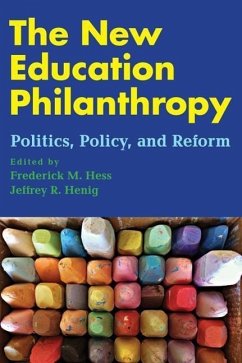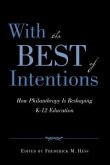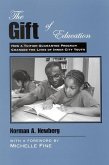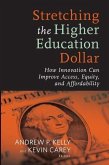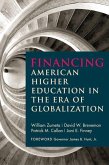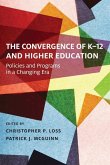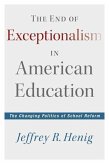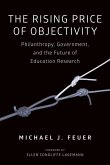Philanthropic foundations play an increasingly influential role in education research, policy, and practice--yet this sector has been subject to little research-informed analysis. The New Education Philanthropy examines the shifting role of education philanthropy over the last decade, offering an unprecedented look behind the scenes at the major foundations--Gates, Broad, Walton, and Lumina, among others--that are increasingly aggressive and strategic in their use of funds. "This remarkable volume provides penetrating analyses of every corner of the changing education landscape, from a range of philosophical perspectives rarely juxtaposed in today's polarized discourse. The findings are both encouraging and disturbing. The New Education Philanthropy is essential reading for all parties in the debate over education." --Dale Russakoff, author of The Prize: Who's in Charge of America's Schools? "Hess, Henig, and the contributing authors have made a valuable contribution to the dialogue about the appropriate role of wealthy donors in K-12 education. Collectively, The New Education Philanthropy gets it right. A couple of billion dollars invested in reform will never 'leverage' overnight transformation but it can have a profound impact worth studying." --Jim Blew, president, StudentsFirst, and former advisor, The Walton Family Foundation "Ten years ago, big foundations confronted the fact that philanthropic dollars were mere buckets into a sea of public spending on education, and many shifted their strategies. This exemplary volume gathers together a diverse group of exceptional authors to explore the recent and more muscular philanthropic approach." --Rob Reich, professor of political science, Stanford University, and faculty codirector, the Stanford Center on Philanthropy and Civil Society "The New Education Philanthropy provides a broad-based and penetrating look at the role of philanthropy in education reform." --Adam Gamoran, president, William T. Grant Foundation Frederick M. Hess is a resident scholar and director of education policy studies at the American Enterprise Institute. Jeffrey R. Henig is a professor of political science and education at Teachers College at Columbia University, where he also serves as chair of the Department of Education Policy and Social Analysis. The New Education Philanthropy is a volume in the Educational Innovations series
Hinweis: Dieser Artikel kann nur an eine deutsche Lieferadresse ausgeliefert werden.
Hinweis: Dieser Artikel kann nur an eine deutsche Lieferadresse ausgeliefert werden.

